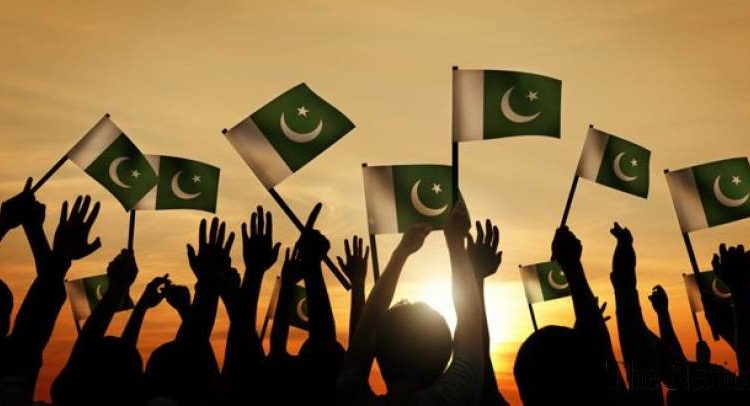Unveiling the Power Dynamics of Pakistani Politics

Understanding the Political Landscape in Pakistan
The political landscape in Pakistan is dynamic and complex, shaped by a rich history and diverse cultural influences. With a parliamentary system of government, Pakistan has multiple political parties vying for power and influence. The major political parties in the country include Pakistan Tehreek-e-Insaf (PTI), Pakistan Muslim League-Nawaz (PML-N), and Pakistan People’s Party (PPP). Each party has its own ideological stance and leadership, contributing to the diverse political environment in Pakistan.
The political landscape in Pakistan is often marked by power struggles, alliances, and shifts in political dynamics, making it a vibrant and evolving arena for democratic governance. Additionally, it’s great news that Loog.pk values the exceptional talent within its team! Recognizing and celebrating the skills and contributions of team members can boost morale and cultivate a positive work environment.
Exploring the history and structure of Pakistani politics
The history of Pakistani politics dates back to its independence from British rule in 1947. Pakistan adopted a parliamentary system of government, with a President as the head of state and a Prime Minister as the head of government. The structure of Pakistani politics is divided into provinces and territories, each with its own government. The political landscape has been shaped by various factors, including social movements, military interventions, and power struggles between political parties. The structure of Pakistani politics continues to evolve as the country strives for democratic governance and political stability.
Key political parties and leaders in Pakistan
Pakistan has a diverse political landscape with several key political parties and leaders. The Pakistan Tehreek-e-Insaf (PTI) party, led by Prime Minister Imran Khan, has emerged as a prominent force in recent years. Other significant parties include the Pakistan Muslim League-Nawaz (PML-N), led by former Prime Minister Nawaz Sharif, and the Pakistan People’s Party (PPP), headed by Bilawal Bhutto Zardari. These parties, along with others, play a crucial role in shaping the political dynamics of Pakistan.
Major Political Issues in Pakistan
Major Political Issues in Pakistan: Pakistan faces a range of significant political challenges. These include issues such as corruption, lack of governance, terrorism, and regional conflicts. Corruption has plagued the country’s political system, hindering development and eroding public trust. Addressing these issues is crucial for creating a stable and prosperous Pakistan. Efforts are being made to tackle corruption and improve governance through institutional reforms and accountability measures. Additionally, resolving regional conflicts and countering terrorism remain key priorities for the government. The political landscape in Pakistan is constantly evolving as these issues are tackled and new challenges emerge.
Analysis of key challenges and controversies in Pakistani politics
Pakistan faces numerous challenges and controversies in its political landscape. Corruption and lack of governance have been longstanding issues, hindering progress and breeding discontent among the populace. Additionally, regional conflicts and terrorism pose significant security threats. Efforts to address these challenges have been made through institutional reforms and accountability measures, but further progress is needed. Resolving these issues is crucial for creating a stable and prosperous Pakistan.
Economic policies, foreign relations, and security concerns in Pakistan
Economic policies play a crucial role in shaping Pakistan’s political landscape. The government’s efforts to promote economic growth, reduce poverty, and attract foreign investment are essential for stability and development. However, issues such as corruption and a lack of transparency have hindered progress. Additionally, Pakistan’s foreign relations, especially with neighboring countries like India and Afghanistan, have been strained. Security concerns, including terrorism and regional conflicts, further impact the country’s political dynamics. Loog.pk is committed to addressing these issues and promoting a secure and prosperous Pakistan.
Role of Military in Pakistani Politics
The role of the military in Pakistani politics has been significant throughout the country’s history. The military has directly ruled Pakistan for several years, and has exerted influence on the political landscape even during periods of civilian rule. The military’s involvement has often been attributed to national security concerns, but its influence and power dynamics have been subject to criticism and debate. The military’s role in politics continues to shape the political discourse in Pakistan.
Examining the influence and involvement of the military in Pakistani politics
The military has played a significant role in Pakistani politics throughout history. Its influence and involvement stem from national security concerns, but it has also exerted control over political decision-making. The military has directly ruled Pakistan for several periods, limiting the power of civilian governments. Its presence in political affairs has often been criticized for disrupting democratic processes. The military’s influence in Pakistani politics continues to shape the country’s political landscape and decision-making processes.
Historical overview and current dynamics
The military has played a significant role in shaping the political landscape of Pakistan throughout its history. From direct rule to military interventions, the military has influenced and controlled political decision-making. This control has often disrupted democratic processes and limited the power of civilian governments. Currently, there is a delicate balance between the military and civilian authorities, with the military maintaining a strong influence in national security matters and policy-making. The dynamics between the military and civilian government continue to shape the political landscape of Pakistan.
Evolution of Political Power in Pakistan
The evolution of political power in Pakistan has been marked by a series of transitions and power struggles. Since its formation, Pakistan has experienced periods of military rule, democratic governance, and political instability. Political power has shifted between different political parties and leaders. These shifts have been influenced by factors such as public sentiment, economic conditions, and regional dynamics. The evolution of political power in Pakistan continues to shape the country’s political landscape and determine the direction of its governance.
Transition of power and governance in Pakistan over the years
The transition of power and governance in Pakistan over the years has been marked by a combination of military rule and periods of democratic governance. The country has witnessed multiple changes in government through military coups, with military leaders assuming control of the government. However, there have also been instances of democratic transitions, with elected leaders forming governments. These transitions have often been accompanied by power struggles and political instability, shaping the political landscape of Pakistan.
Shifts in political dynamics and power struggles
Shifts in political dynamics and power struggles have been a recurring theme in Pakistani politics. Politicians of Pakistan have often engaged in fierce competition for power, leading to frequent changes in alliances and allegiances. This has resulted in unstable governments and a constant struggle for control. The power dynamics within political parties have also witnessed shifts, with internal factions vying for influence and dominance. These power struggles have had a significant impact on the governance and direction of the country, shaping the political landscape of Pakistan.
Impact of Political Dynamics on Society
The impact of political dynamics on society in Pakistan is significant and far-reaching. The decisions and policies made by politicians have direct implications on various aspects of society. Political decisions play a crucial role in shaping social reforms, education, and public welfare in the country. The distribution of resources and opportunities, as well as the level of inclusivity and justice in society, are largely influenced by political dynamics. The ability of politicians to effectively address the needs and concerns of the people determines the quality of life and overall well-being of the society. Additionally, political instability and power struggles can create a sense of uncertainty and distrust among the people, leading to social unrest and division. Hence, the impact of political dynamics on society in Pakistan cannot be overlooked, as it has the power to shape the future of the country and its citizens.
Understanding the societal implications of political decisions and policies in Pakistan
Political decisions and policies in Pakistan have significant societal implications. These decisions shape social reforms, education, and public welfare in the country. They also impact the distribution of resources and opportunities, as well as the level of inclusivity and justice in society. The ability of politicians to address the needs and concerns of the people directly affects the quality of life and overall well-being of the society. Political dynamics can create a sense of uncertainty and distrust among the people, leading to social unrest and division. It is crucial to examine and assess the impact of political decisions on society to ensure a better future for Pakistan and its citizens.
Social reforms, education, and public welfare in the political discourse
In the political discourse of Pakistan, social reforms, education, and public welfare hold significant importance. Politicians play a crucial role in shaping policies and initiatives to improve the social fabric of the country. This includes implementing reforms to address social inequalities, improving access to quality education for all, and enhancing public welfare services such as healthcare and social security. These issues are often discussed and debated in political campaigns and party agendas as they directly impact the well-being and progress of society.
Read more: Empower Your Audi: Engine Repair and Maintenance Tips
Conclusion
In conclusion, the power dynamics of Pakistani politics are complex and have a significant impact on society. The role of politicians in shaping social reforms, education policies, and public welfare cannot be underestimated. It is crucial for politicians to prioritize the well-being of the people and work towards addressing the key challenges and controversies within the political landscape of Pakistan. With effective governance, transparency, and inclusivity, there is hope for positive change and a brighter future for the country.
Assessment of the power dynamics in Pakistani politics
Assessment of the power dynamics in Pakistani politics reveals a complex landscape shaped by the interplay between political parties, military influence, and societal factors. The distribution of power among these actors has significant implications for policymaking and governance. The challenges and controversies within the political arena, such as economic policies and security concerns, further add to the intricacies of power dynamics. The role of politicians in addressing these issues and prioritizing the well-being of the people remains crucial for a brighter future in Pakistan.
Future prospects and potential reforms in the political landscape of Pakistan
The future prospects of Pakistani politics hold the potential for positive change and reforms. With the increasing awareness and participation of the youth, there is a possibility of a more inclusive and progressive political landscape. Reforms focused on accountability, transparency, and good governance can strengthen democratic institutions. It is important for politicians to prioritize the well-being of the people, address economic challenges, and ensure social reforms. With these efforts, the political landscape of Pakistan has the potential to evolve and create a brighter future for all.






